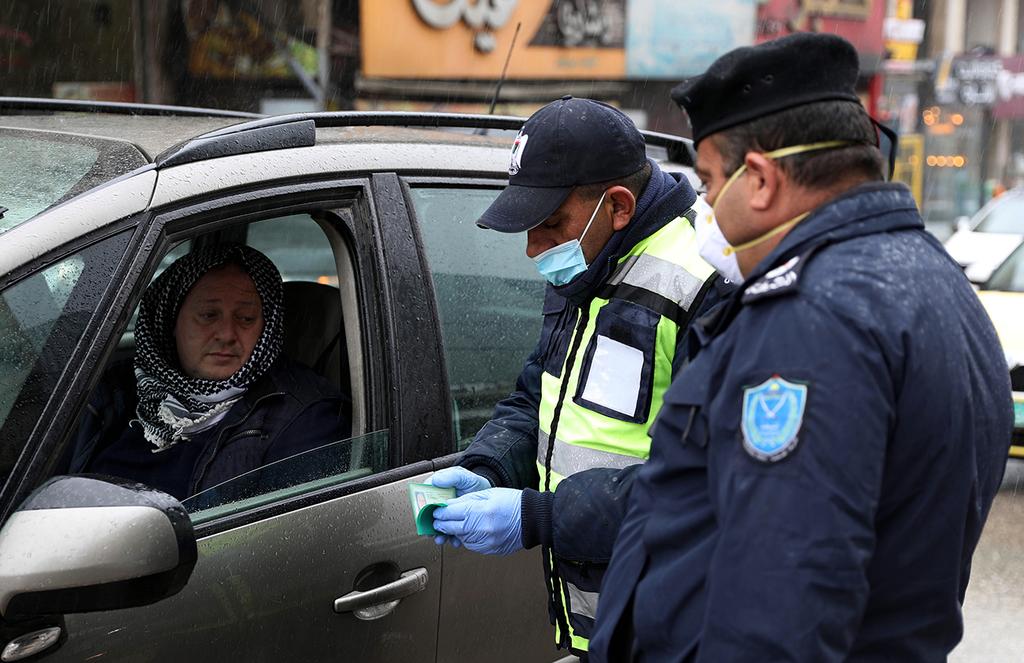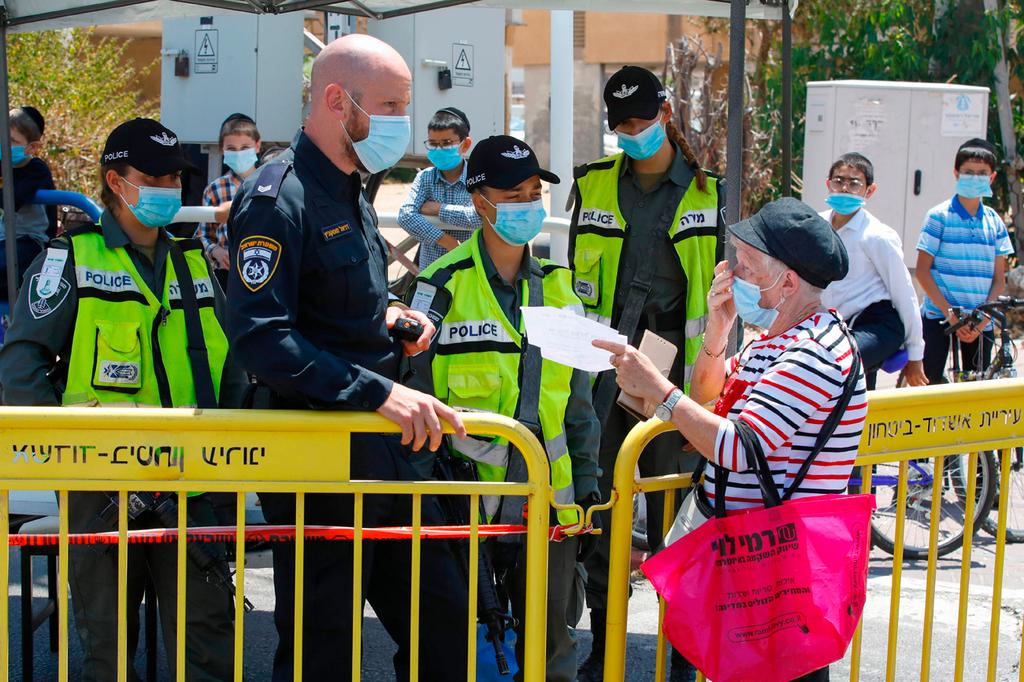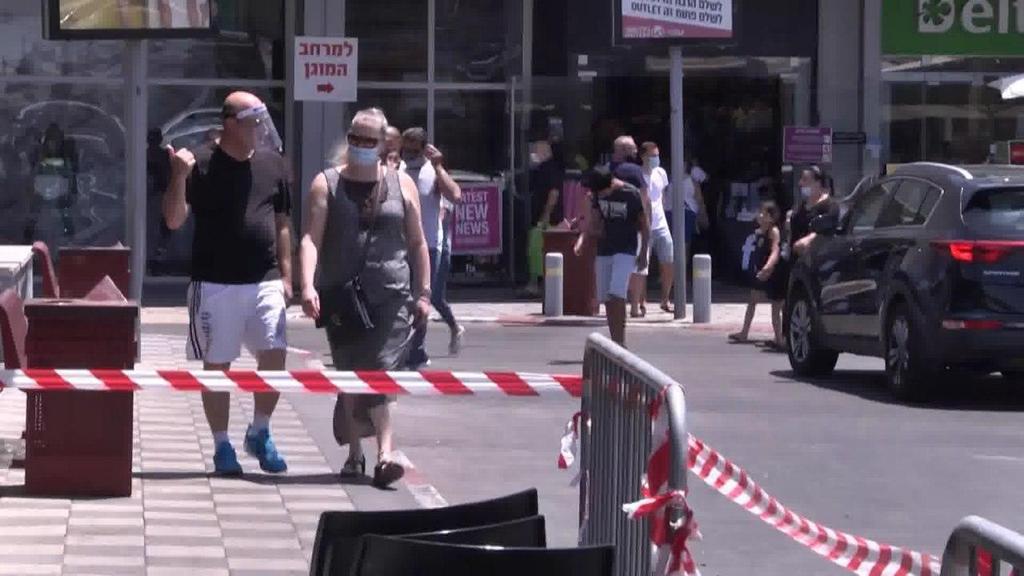West Bank, residents of the Palestinian Authority have been ordered since Friday to remain at home unless they need to purchase food or medicine. Movement between cities and towns is heavily restricted. The lockdown is expected to last five days.
Authorities fear that if the renewed outbreak of coronavirus would spiral out of control and could overwhelm its under-resourced health care system.
4 View gallery


Palestinian police officers upholding lockdown during coronavirus outbreak in West Bank city of Hebron
(Photo: EPA)
In the past two weeks, Palestinian health authorities have reported more than 1,700 confirmed coronavirus cases in the West Bank city of Hebron and hundreds more in Bethlehem and Nablus.
The West Bank has reported more than 3,800 cases since the outbreak began. Thirteen have died.
Israel ordered thousands of people into quarantine after a contentious phone surveillance program resumed as Palestinians in the West Bank returned to life under lockdown after both areas saw surges in coronavirus cases.
A statement Sunday from the Health Ministry said "many" messages had been sent to Israelis following the renewed involvement of the Shin Bet security agency.
So far, tens of thousands of people have been notified they must enter quarantine since Thursday.
4 View gallery


Police checkpoint in Ashdod after parts of which were palced under lockdown due to an uptick in coronavirus cases
(Photo: AFP)
After imposing strict measures early on during the first wave of infections, Israel and the Palestinian territories appeared to have contained their outbreaks, with each reporting only a few dozen new cases a day in May. But an easing of restrictions led to a steady uptick in cases over the past month.
"We wanted to continue and open the economy as much as possible but with the number of infections, which appeared like a very high cliff, it forced us at this point to get involved more aggressively," Defense Minister Benny Gantz told Army Radio.
Israel is now reporting more than 1,000 new cases a day, higher than its peak during the previous wave and it is set to reimpose restrictions in response, limiting occupancy in bars, places of worship, and event spaces to 50 people. It is requiring citizens to wear face masks in public spaces and has urged more stringent social distancing.
With its contact tracing apparatus struggling to keep up with the mounting caseload, Israel last week redeployed the Shin Bet to use its sophisticated phone surveillance technology to track Israelis who have come in contact with infected people and then notify them that they must enter home quarantine.
The measure is typically used to thwart attacks by tracking Palestinian militants.
4 View gallery


Shoppers in face masks walking down a commercial center during coronavirus outbreak
(Photo: Amit Huber)
The contentious tactic was used when the outbreak first emerged earlier this year, and while civil rights groups challenged it in the Supreme Court, the court threatened to halt its use unless it was put under legislative oversight. The Israeli Knesset has since done so twice using temporary legislation, most recently on Wednesday.
While officials have defended the practice as a life-saving measure, civil rights groups attacked it as an assault on privacy rights. Analysts say the measure may act as a dragnet that could needlessly force some into quarantine.
Of the thousands ordered into home quarantine, many Israelis complained that they struggled to appeal quarantine orders because the Health Ministry's hotline was overwhelmed and ill-equipped to handle such a deluge.
Israel appeared to have put the pandemic behind it in May, with Prime Minister Benjamin Netanyahu proudly urging Israelis to go out, grab a coffee or a beer, and "have fun."
Critics have charged that amid the dwindling cases, Israel let down its guard, reopened too quickly and failed to capitalize on its gained time to improve its contact tracing capabilities to contend with a second wave.
Netanyahu, who was largely seen as having capably handled the first wave, has suffered in public opinion polls from his approach this time around.
Since the start of the outbreak, Israel has seen more than 29,000 cases and 330 deaths. More than 17,000 people have recovered.
First published: 22:29, 07.05.20


